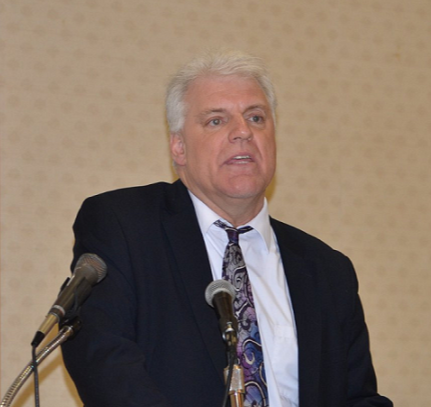Dec. 22, 2019 3:30p; Edited at 5:15p for clarity
(WGTD)---Kenosha County District Attorney Michael Graveley has taken the unusual step of going to social media to defend his prosecution of Chrystul Kizer, the Milwaukee teen who killed a Kenosha man who was involved in child trafficking.
In a post on his Facebook page, Graveley asks those who have taken an interest in the case to reserve judgement until all of the facts come out at the trial. He says there's been a "significant" amount of false information spread online.
Graveley's post comes just days after the Washington Post published a lengthy article about the case.
The Post story was based in part in what they said were five hours' worth of jailhouse interviews conducted on multiple occasions.
In one of those sessions, Kizer reportedly told the Post that the man whom she killed, Randy Volar, had sex-trafficked her on-line, and had driven her from his Kenosha home to meet men in Milwaukee on multiple occasions.
In his defense of his handling of the case, Graveley notes that in three prior police interviews--two of which were requested by the defendant--Kizer never indicated that she was trafficked by Volar. Instead, Graveley says Kizer initially met Volar through a Backpage.com ad and that he paid her to have sex with him.
The extent of Kizer's victimization may have a bearing on her case because state law appears to give immunity to individuals who can show that any crime they've committed was the result of being trafficked. Earlier this month, the judge in the Kizer case, David Wilk, found that the law was overly broad. His pre-trial ruling is being appealed by the defense.
At the time of his death in June, Volar was under investigation. The investigation was sparked by a call to police from a half-naked, 15-year-old girl who was found wandering the streets near Volar's home in February. A subsequent search of Volar's home turned up evidence that he was involved with under-aged girls. Volar was arrested but released without charges while police continued their investigation.
In his Facebook post, Graveley said police didn't refer the case to his office until May 24th, 12 days before Volar was killed.
According to court filings, explicit photos and videos of multiple females were discovered in Volar's electronics, including a photo of Kizer.
Based on the evidence, Graveley said it appears Kizer had planned the killing several days in advance. Volar was shot twice in the head and then his home was set on fire.
Graveley says he's pursuing the case against Kizer because he can't condone "vigilante justice when presented with evidence of premeditated murder." He also said he feels it isn't appropriate for prosecutors to try to weigh the value of victims' lives.
-0-

